#tsar 2009
Text
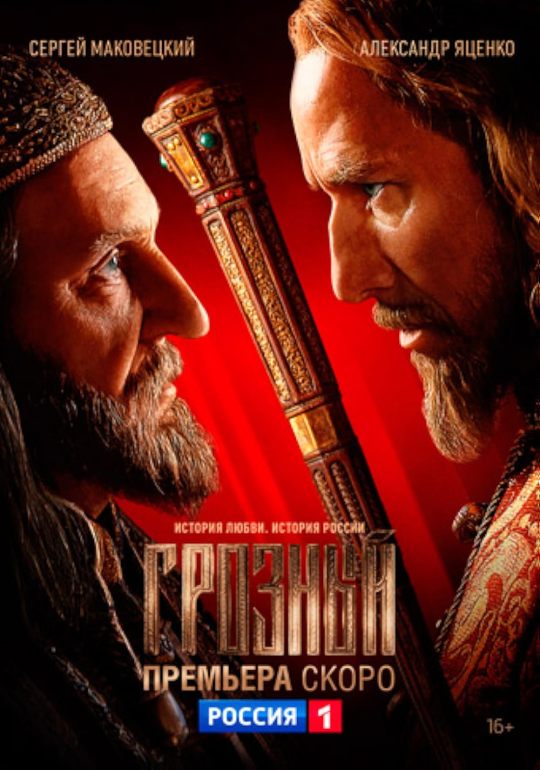
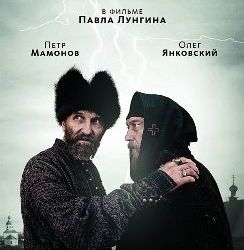
ROUND 1: GROUP D
#round 1#The Terrible#Groznyy#The Terrible 2020#tsar 2009#Groznyy 2020#the tsar#russian period dramas bracket#period dramas#tumblr bracket#polls#tumblr polls#russian period dramas
0 notes
Text
@4701rose tagged me in the last line meme! I’m bending the rules because I’ve been doing a lot of editing so I can’t actually remember what the last line I wrote was. So here’s a bit I’ve decided to excise as not useful-
Alex hadn’t known how to stop shedding viral particles for nearly six days after waking up. Dana breathed in a lot of Blacklight before void figured it out. Void spent a considerable amount of time and effort attempting to slow or at least stagger the process of her infection. It was trial and error (since void knew not to repeat the faulty processes that led to the mess of Penn Station, nor the one that made voidself… break... the original, and void definitely wouldn’t be doing to Dana the messy thing void did to Karen Parker-), but by this point Alex was fairly certain Dana would stay Dana no matter how far the infection progressed.
Ummmmm…! Also not going to try and tag people for words but uh. @raventhekittycat @flyawaybooks @athousandstarstodreamon @hergan416 @manicshipper @qwertialmalfunctions @delirious-lycan
#I don’t know how to do the fancy set the text apart thing hrm.#also anyone else who wants to do this is welcome ofc!!!#I guess techncially my last writing might have been that cannibalism thing on my alex character study blog huh#anyway#prototype 2009#alex mercer prototype#dana mercer#(mentioned…)#evil virus mommies are all the same#tsar crayon ruler of the wasteland#also hi prototype tag nice to see u all I’m normally here on my side blog but lo. an original post on my main! amazing
5 notes
·
View notes
Text
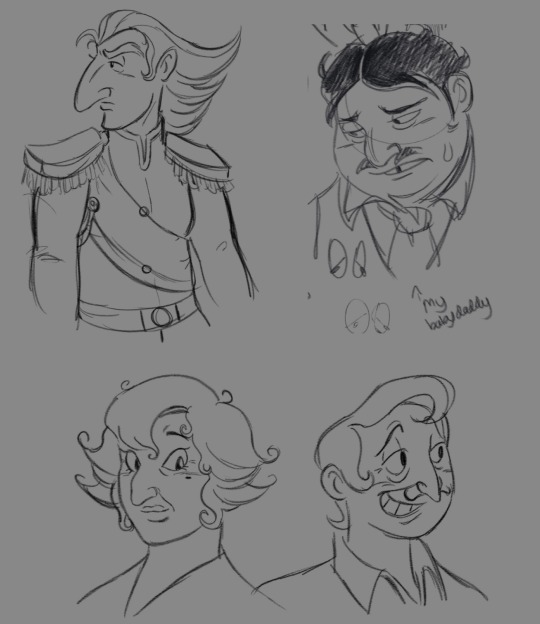
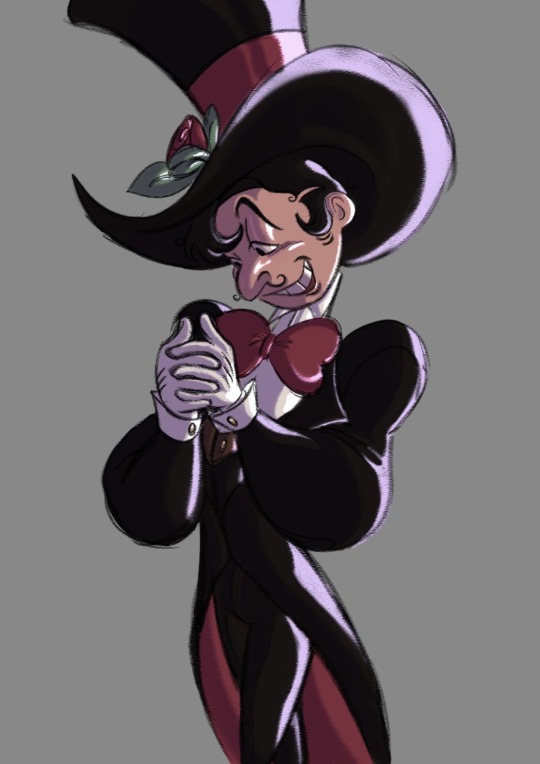
Various recent sketches.
1. A young Duke Red. Took inspiration from Jet Link and various Tsars of Russia for his design.
2. 2009 Hamegg I did during a call with Sukie and Tec. I forgot I made that comment at the bottom.😭
3. My designs for my headcanon of Hamegg’s parents. Biscayn’ Gravy (my OC) and Bacon Egg. Tried to balance out the features so neither looked like a clone of Ham, also added features of Tohnan and my OC Tatiana as I headcanon they’re siblings of him.
4. Experimental drawing of Caccitore I feel rather indifferent about.
#Chart#Hamegg#Duke Red#Biscayn Gravy#Bacon Egg#Astro Boy#Tezuka#Tezuka Star System#Tezuka Osamu#Osamu Tezuka#Hammond Egg#OC
56 notes
·
View notes
Text
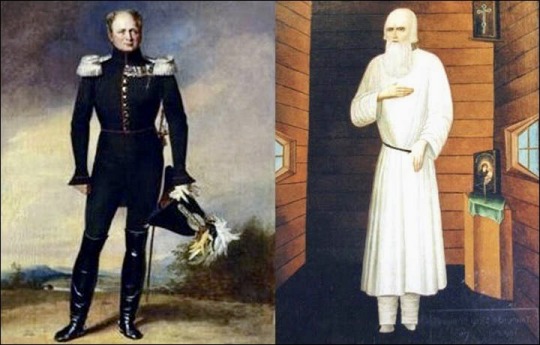
On this day:
THE HERMIT TSAR
On November 19, 1825, in southern Russia, Tsar Alexander I officially died—or did he? Rumors abounded, saying that the disillusioned emperor had faked his death, substituting the corpse of a soldier to be his proxy for the death certificate. Apparently Alexander had become sick in mid-November and, refusing to take any medication for his ills, died an undetermined number of days later. Four people testified to witnessing his death: his wife, the Empress Consort; his aide-de-camp; his personal physician; and a court physician. Unfortunately, the testimonies contradicted one another, and the pages from the Empress's diary written at the time of his illness went missing altogether.
Nicholas I, Alexander's successor, had royal documents from Alexander's last reigning year demolished. The emperor's autopsy report, signed by ten doctors, including the royal surgeon, described a body that had appeared to suffer from diseases, such as syphilis, which the tsar had never had. The royal surgeon later denied signing an autopsy report even though his signature could be seen on the paper. In 1827 the tsar's tomb was opened in the dead of night by order of the imperial court. His casket contained only lead bars.
In 1826 a pauper known as Fedor Kuzmich appeared in Kransnophinsk, Russia, was arrested for vagrancy, and was then sent to Siberia. The stately looking beggar, with a secret past, became a hermit and soon earned a reputation for his healing powers. People journeyed great distances for his solace. Among the pilgrims were two servants, exiled from the royal palace and relegated to Siberia. When one of them became ill, the other found a guide to take him to Kuzmich, the healer for medicine. The comrade was reportedly astonished to recognize Kuzmich's voice as that of the former Tsar Alexander and promptly fainted. The guide was advised to tell the fainter that his friend would recover and that they should both forget the incident entirely. Kuzmich died in 1864, whispering, "God knows my real name."
Text from: Almanac of the Infamous, the Incredible, and the Ignored by Juanita Rose Violins, published by Weiser Books, 2009
9 notes
·
View notes
Text
"The 1821 revolution saw the creation of the Greek national state and the emergence of a strong Greek sense of national identity. Professor Vrasidas Karalis explores the political and historical significance of the revolution of 1821 and its relevance to our contemporary times.
Professor Vrasidas Karalis
23 March 2009 12:00am
When the Greek Revolution broke out in the early months of 1821, it brought with it the revival of an idea that seemed to have gone astray after the French Revolution.
The Revolutionaries themselves stated in their declaration of independence that they were fighting for liberty, equal rights and human emancipation.
“We are fighting against tyranny, despotism, and the darkness of slavery,” they declared.
A few months later, in their first constitution, the French [my note: obviously the author means the Greek] ]revolutionaries abolished social distinctions and redistributed wealth, gave equal rights to poor and rich alike, established a functional system of distinct authorities and declared that reason and freedom go hand in hand. A slave cannot be a thinking human being, they proclaimed.
It was indeed a momentous event after the undisputed victory of the conservatives against Napoleon and the consolidation of the political status quo in Europe with the Council of Vienna in 1815.
No change in borders nor any change in the political regimes throughout Europe was the decision taken by the nobles and the diplomats of the all great dynasties of the period.
Even the Russian Tsar insisted that there should be no change in the political map. Paradoxically, this included Russia’s major enemy, the declining Ottoman Empire, which secured its shrinking borders and its sovereignty over its subject nations.
So when the Greek Revolution broke out, the conservative European alliance found its very authority questioned and challenged.
When the Greeks declared their independence they gained the hostility of the established European powers and the admiration of the common people.
Indeed this was a revolution of the common people against despotism and the oppression of an autocratic ruler who could not understand the changes that were happening around him.
Most historians insist that the Greek Revolution was a nationalist movement for the establishment of a Greek nation-state.
In reality it was a grass root movement for human rights and freedom, a vertical movement that united most social classes under a common goal: the establishment of a public sphere in which human beings could interact with equal rights, dignity, justice and solidarity.
It is interesting to remember that public opinion was immediately favourable to the revolution, and the press, so heavily censored, could not hide its deep admiration for the confused news emerging from the region.
Indeed other historians have presented the revolution as being organised by the middle class merchants for the Greek Diaspora, who had formed secret societies, on the model of the Masonic lodges.
Yet all these societies disappeared the first day of the revolution; we have no information about them after the day the Greeks emancipated themselves from the role of the enslaved nation.
Others have insisted on romantic philhellenism that permeated the post-Enlightenment Europe; yet these were contributing factors, not the fundamental reasons.
The first declaration by Alexandros Ypsilanti stated “Fight for Faith and Motherland! The time has come, O Hellenes.
Long ago the people of Europe, fighting for their own rights and liberties, invited us to imitation … The enlightened peoples of Europe are occupied in restoring the same well-being, and, full of gratitude for the benefactions of our forefathers towards them, desire the liberation of Greece.”
It was a wake-up call; Greeks were not simply fighting for faith and motherland but for their rights and liberties; indeed these ideas coexisted in the mind and the various trends amongst them and later caused enormous trouble and disunity.
After so many centuries of enslaved existence, freedom was an unfeasible dream for those who grew up in conditions of repression and fear.
The father of Greek nationalism, Adamantios Koraes, from his diasporic position in Paris, sent his own edition of Aristotle’s Politics to the revolutionaries with a long letter recommending a program of social reforms and the introduction of a system of checks and balances in order to regain, as he stated, “our human nature”.
He suggested that our humanity was in its expression a political issue, a question that had to be resolved through dialogue and negotiations.
It is obvious that the Greek revolution was a great promise in an era of conservative rule and diminished expectations.
It was not simply a nationalistic movement; it was predominantly a political and social uprising which disruptuted the domination of autocracy and totalitarianism.
It renewed the great promises of the American and French revolutions, and brought their ideas for the first time into Eastern Europe and the Balkans, accelerating thus the process of fragmenting the surviving medieval empires by introducing the ideas of self-determination and self-government.
Like any other revolution however the Greek revolution remained incomplete. It established an independent state which in its function undermined and finally abolished the promises of the revolution.
Most revolutionaries were imprisoned, or died in utter poverty. The Revolution itself became a national myth, de-politised and de-radicalised, with racialist undertones and quasi-religious character.
Today we can critically revisit the legacy of the early days and years of the revolution; we honour the visionary projects and empowering ideas; we admire the courage and the self-negation of the individuals; and yet feel rather sad with what followed.
But the legacy remains declaring again and again that the struggle for human freedom, dignity and justice never ends and we have to carry it on from generation and generation and win again and again what the great people of the past have struggled to achieve for us."

Vrasidas Karalis is Professor of Byzantine and Modern Greek Studies at the University of Sydney, Australia.
I don't agree at all with the anti-Syriza (the main party of the Greek Left) takes of Professor Karalis in the recent past (although for sur he is not a right winger). However, Karalis is an important intellectual of the Greek Diaspora and this article of his is enlightening and thought provoking.
My remarks are firstly that, if it is true, as he says, that the Greek Revolution was a vertical movement that united most social classes under a common goal, this does not mean that the traditional and new elites of the revolted Greeks did not have also their own particular goals and strategies for the post-revolutionary Greece, their main goal being obviously the perpetuation and consolidation of their hegemony. Secondly, the Greek Revolution was perhaps first of all the revolt of a subjugated and oppressed ethno-religious group (the Christian Orthodox Greeks), a thing which had consequences on the nature of this Revolution. But I think that Pr. Karalis is totally right when he stresses that the Greek Revolution was also a continuation of the American and French Revolutions and a struggle for freedom and human dignity which shook the conservative domination in Europe and inspired other movements for national, political, and social liberation.
3 notes
·
View notes
Photo

Was Napoleon Bisexual?
I have seen several tumblr posts (or it is the same being reblogged over and over again haha) on a specific book: Napoleon bisexual emperor by Frank Richardson. Unfortunately this book is seemingly very hard to find and since I'm no expert on determining someone's sexuality, I just wanted to share a few quotes I found on this subject since it seems to fascinate quite some people, myself included.
Here is a piece from the ebook dictator's sex lives:
“There has been a great deal of speculation that Napoleon was gay. He tolerated homosexuality in the army and refused to outlaw homosexual practices in his Napoleonic Code. Many men wrote of his “seductive charm”. General de Segur put it most succinctly: “In moments of sublime power, he no longer commands like a man but seduces like a woman.”
Later during his exile on st Helena Napoleon confided something to Caulaincourt upon meeting a handsome man:
"He told me that for him the heart was not, the organ of sentiment; that he felt emotions only where men experience feelings of another kind: nothing in the heart, everything in the loins and in another place, which I leave nameless."
One of the famous arguments used to proof Napoleon's possible bisexuality was Napoleon's obsession with the young Tsar of Russia, Alexander I. When they first met on a raft on the River Tilsit, Napoleon exclaimed: "It is Apollo!" Later he wrote to his wife Josephine: "If he were a woman I would make him my mistress."
Josephine’s maid talked about Napoleon’s “predilection for handsome men”. His aides were often young and effeminate, and he would caress them. Even his secetary Meneval described some of Napoleon's behaviour which would be viewed as slightly unusual:
"In these days of leisure, which was but apparent, for it usually concealed an increase of cerebral activity, Napoleon appeared embarrassed how to spend his time. He would go and spend an hour with the Empress, then he would return, and sitting down on the settee, would sleep, or appear to sleep for a few minutes. He would then come and seat himself on the corner of my writing-table, or on one of the arms of my chair, or even on my knees. He would then put his arm round my neck, and amuse himself by gently pulling my ear, or by patting me on the shoulder, or on the cheek. He would speak to me of all sorts of disconnected subjects, of himself, of his manias, of his constitution, of me, or of some plan that he had in his head."
Some historians affirm that Napoleon had multiple affairs with men, mainly soldiers but of course there is no real evidence to back this up, yet at the same time it was of course logical that such meetings would not leave much if any evidence behind.
Keith Stern (Queers in History, 2009) mentions that Napoleon was particularly inclined toward same-sex love with his fellow soldiers, and that many of his aides were notoriously effeminate. General Duroc, who served as Grand Marshal of the palace, was widely rumored to be the emperor’s lover. As well, Gaspard Gourgaud, one of Napoleon’s aides/lovers, jealously guarded access to his master.
We can however never be certain whether Napoleon was truly bisexual though there are some experiences and written down encounters that suggest that he was. Of course being bisexual in the 18th and 19th century would have been a completely different experience than in the 21st century. It is however noticable how virtually every country in Europe punished sodomy severely yet Napoleon decided to decriminalize the act of sodomy completely.
There is one last interesting thing to observe: Napoleon had a homosexual friend, Laugier de Bellecour who studied with him on the École Militaire. It is known that Laugier sometimes teased Napoleon about his moralities concerning sexual activities with men which eventually resulted in the fight between the two. Later Napoleon said he regretted it and often spoke of his friend with genuine affection.
Make of this what you wish but it will certainly remain an interesting subject to study.
94 notes
·
View notes
Text
#unhallowedarts - Castles, Swords and Nimble Wits. Hal Foster's Prince Valiant as Demon.
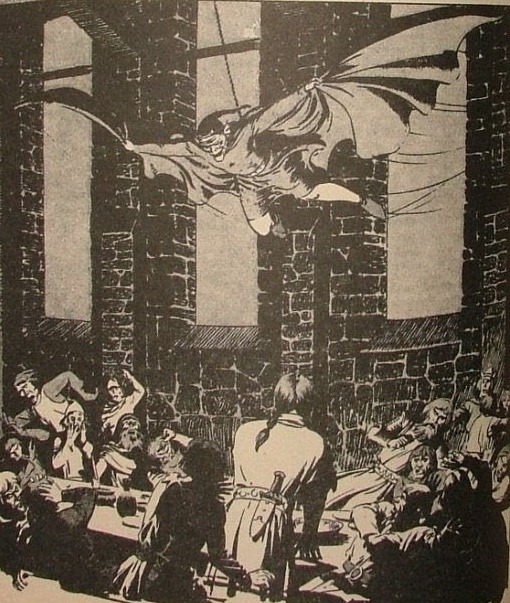
“For the sake of fair Ilene Val dares pit his nimble wit against the might of the Ogre of Sinstar Wood and all his followers.”
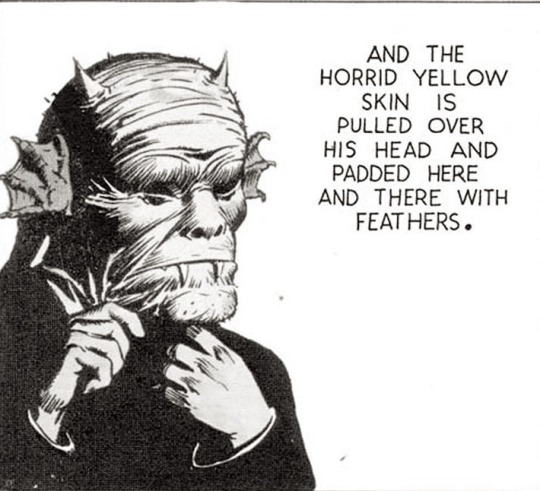
Maybe drawing ladies’ underwear for catalogues is not the worst job a young graphic artist can land. It was the first steady creative work young Harold from Halifax did. Back in 1912, for the Hudson Bay Company. And after moving on from drawers to drawing the Lord of the Apes, finally, in the early 1930, Hal Foster had a chance to prove what he dab hand he was in narrating stories with pictures. With a friend, he cycled the 1,000 miles from Canada to Chicago, to take art classes, studied the Great Ones from the Golden Age of Illustration and especially the American masters did it to him. With something close to his contemporary Leyendecker’s aesthetics, it were Maxfield Parrish and especially N.C. Wyeth who proved to be a major influence on one of the milestones of the development of graphic novels into a serious artistic medium: Hal Foster’s “Prince Valiant”. What looked like quite the adaption from Wyeth’s take on the rich imagery of “Le Morte d’Arthur” by Thomas Malory, published some 15 years before as “The Boy’s King Arthur”, Foster’s masterpiece of depicting a narrative was first published in the “New Orleans Picayune” in February 1937. And no one less than press tsar Randolph Hearst himself recognised the potential of Foster’s talent and tale and granted him full creative control and regular publication of what was to become the story of “Prince Valiant in the Days of King Arthur”. For the next 30 years, until Foster finally left the project in 1971.
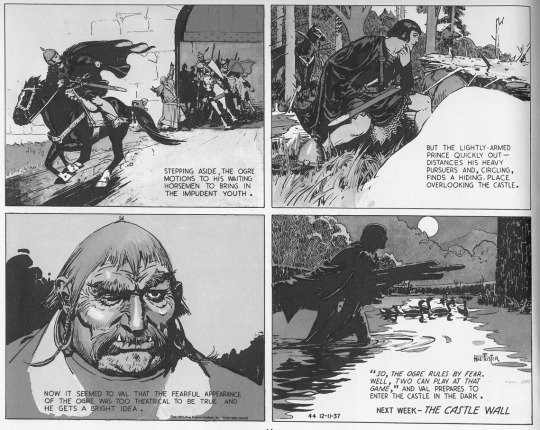
“Prince Valiant” is, taken all its high artistic value for granted, Foster’s brilliant use of chiaroscuro and highly detailed, cinematic illustrations, as historical as a typical Hollywood history flick. Which means: not in the least. The 5th century late- and post-Roman world in Foster’s imagination is populated by Vikings, Muslims, Knights from the Late Middle Ages, Renaissance tech and what not. And we do have a historical date. Young Val witnesses the murder of Flavius Aëtius in Rome in September 454AD. That witches and wizards and dino-like swamp monsters disappeared from the story during the 1940s is hardly noticeable in Foster’s heap of broken historical images. But that usually doesn’t spoil a good story. At least if the hypocrite lecteur is not a true-blue historian who had archived his own sense of wonder somewhere in a deep cellar where spiders and dust bunnies nest and the ghosts of heroic epics walk the night. And as ahistorical as Foster narrates Val’s story, imagery and ideas remain brilliant, especially when his hero uses his brains instead of the magic “Singing Sword”, a downright loveable and inspiring trademark feature of the story.
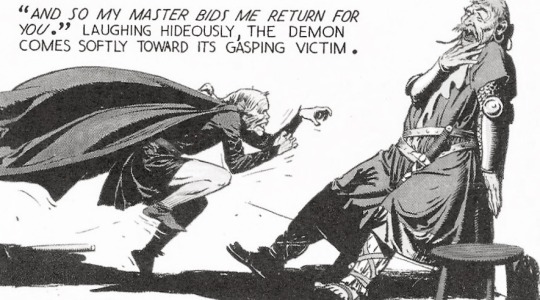
One memorable take was published early on, already in August 1937. Young Val, still Sir Gawain’s squire, sets forth to wrest the castle of Maid Ilene’s parents from the clutches of a robber baron, appetisingly known as “The Ogre of Sinstar Wood”. And what sounds like the typical onset of a chivalric hero quest, climaxing in blood and thunder, is solved in an Ann Radcliffe-style Gothic charade. Making a devil’s mask from the skin of a captured goose and using his black cloak as something that looks like bat wings, Val invades the castle at night, doing quite the aerial acrobatic routine with a rope on the side, scares the Ogre to death and drives his henchmen from the castle by haunting the place for days in his demon guise. Mission accomplished, without a sword being drawn. And no one of his numerous successors in drawing chivalric – or other – adventure stories managed the same tongue-in-cheek humour and innovation in their take on epics than Foster did. While only few rival his artistic talent.

For a quick glimpse into Hal Foster's art and Prince Valiant's tale - below is a medium quality online edition of the first volume from 1937 - 1939
6 notes
·
View notes
Photo
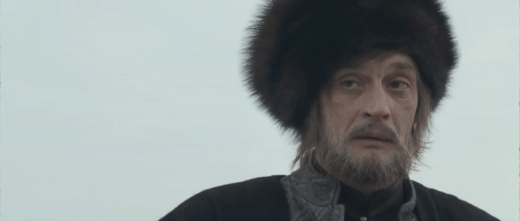

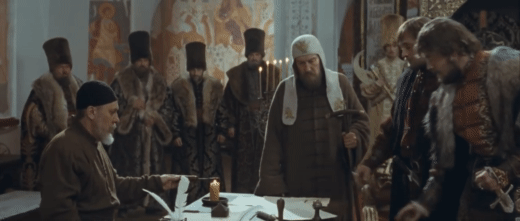
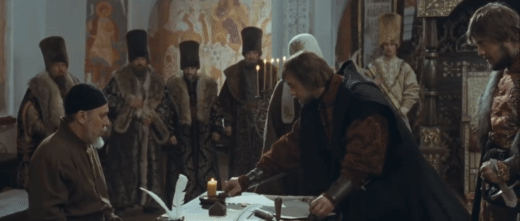
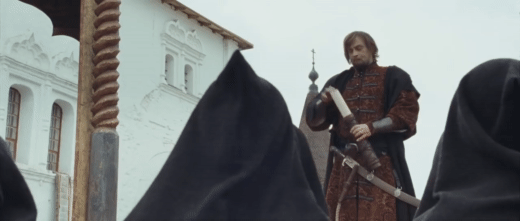
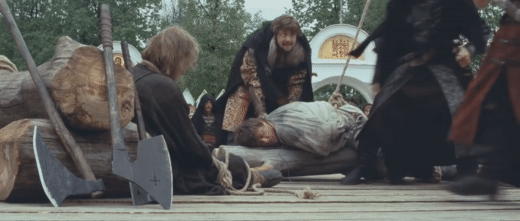


Tsar // Царь (2009)
directed by Pavel Lungin
7 notes
·
View notes
Text
Events 4.30 (after 1950)
1956 – Former Vice President and Democratic Senator Alben Barkley dies during a speech in Virginia.
1957 – Supplementary Convention on the Abolition of Slavery entered into force.
1961 – K-19, the first Soviet nuclear submarine equipped with nuclear missiles, is commissioned.
1963 – The Bristol Bus Boycott is held in Bristol to protest the Bristol Omnibus Company's refusal to employ Black or Asian bus crews, drawing national attention to racial discrimination in the United Kingdom.
1973 – Watergate scandal: U.S. President Richard Nixon fires White House Counsel John Dean; other top aides, most notably H. R. Haldeman and John Ehrlichman, resign.
1975 – Fall of Saigon: Communist forces gain control of Saigon. The Vietnam War formally ends with the unconditional surrender of South Vietnamese president Dương Văn Minh.
1979 – Eruption of Mount Marapi: Mount Marapi, a complex volcano on the Indonesian island of Sumatra, erupted. 80 up to 100 people were killed.
1980 – Beatrix is inaugurated as Queen of the Netherlands following the abdication of Juliana.
1980 – The Iranian Embassy siege begins in London.
1982 – The Bijon Setu massacre occurs in Calcutta, India.
1993 – CERN announces World Wide Web protocols will be free.
1994 – Formula One racing driver Roland Ratzenberger is killed in a crash during the qualifying session of the San Marino Grand Prix run at Autodromo Enzo e Dino Ferrari outside Imola, Italy.
1999 – Neo-Nazi David Copeland carries out the last of his three nail bombings in London at the Admiral Duncan gay pub, killing three people and injuring 79 others.
2000 – Canonization of Faustina Kowalska in the presence of 200,000 people and the first Divine Mercy Sunday celebrated worldwide.
2004 – U.S. media release graphic photos of American soldiers committing war crimes against Iraqi prisoners at Abu Ghraib prison.
2008 – Two skeletal remains found near Yekaterinburg, Russia are confirmed by Russian scientists to be the remains of Alexei and Anastasia, two of the children of the last Tsar of Russia, whose entire family was executed at Yekaterinburg by the Bolsheviks.
2009 – Chrysler files for Chapter 11 bankruptcy.
2009 – Seven civilians and the perpetrator are killed and another ten injured at a Queen's Day parade in Apeldoorn, Netherlands in an attempted assassination on Queen Beatrix.
2012 – An overloaded ferry capsizes on the Brahmaputra River in India killing at least 103 people.
2013 – Willem-Alexander is inaugurated as King of the Netherlands following the abdication of Beatrix.
2014 – A bomb blast in Ürümqi, China kills three people and injures 79 others.
2021 – Forty-five men and boys are killed in the Meron stampede in Israel.
0 notes
Text
TIMELINE
1905 - first Russian revolution, Freud's theory of sexuality, Potemkin incident
1912 - Stanislawski's acting method is created.
1914- assassination of Archduke Franz Ferdinand of Austria, beginning of World War I.
1915- Franz Kafka, The Metamorphosis
1916- Zurich, Cabaret Voltaire
1917 - Bolshevik Revolution
1918 - Assassination of the Tsar and the Romanov family
1922 - March on Rome and coming to power of Mussolini
1929 - Mayakovsky's bug. Prisypkin is frozen as a result of a fire during his wedding.
1930 - Mayakovsky's suicide.
1931- Second Spanish Republic
1932-33- Great famine in Ukraine, Holodomor (famine). Between 3 and 5 million people died.
1933- Hitler comes to power in Germany.
1936- Spanish Civil War. Murder of García Lorca.
1938 - Kristallnacht (Night of Broken Glass).
1939 - Invasion of Poland and beginning of World War II.
1940 - Torutra and execution of Vsevolod Meyerhold.
1945 - The US drops two nuclear bombs on Hiroshima and Nagasaki in Japan.
1947 - For the first time, insects are launched into space: In 1947, the United States sends fruit flies (Drosophila melanogaster) into space aboard a V2 rocket. They were the first animals in space and were part of a series of experiments to study the effects of cosmic rays on living organisms.
1948 - Nakba, and creation of the state of Israel.
1955 - First documenta in Kassel.
1955 - First Israeli raid on Gaza.
1959 - First color TV broadcast
1960 - The contraceptive pill for women is marketed.
1961 - First man launched into space: Yuri Gagarin
1968 - Tlatelolco Tragedy, French May
1969 - Riots at the Stone Wall
1971 - Commercialization of the first Intel 4004 microchip. Abandonment of the gold standard by Richard Nixon.
1975 - Thrilla in Manilla, Muhammad Ali faces Joe Frazier.
1978 - The Russian-Afghan war begins. It will end in 1992.
1979 - Prisypkin wakes up. The Clockwise Experiment: This concept was first developed and tested in 1979 in Ellen Langer's "counterclockwise" study, which examined the psychological effects of turning back the clock on the physiological state of an older adult. The research question was, "If we set the mind back twenty years, will the body reflect this change?".
1981- AIDS crisis, Michelangelo Miccolis is born.
1989- Fall of the Berlin Wall. Tiananmen Square, protests and massacre. Francis Fukuyama publishes "The End of History". Creation of the World Wide Web.
1990 - Nelson Mandela is released from prison.
1992 - Maastricht Treaty
1997 - Death of Princess Diana of Wales.
1999 - Putin comes to power in Russia.
2000 - Y2K. Y2K was a computer glitch, or bug, that may have caused problems when dealing with dates after December 31, 1999.
2001 - 9/11
2003- Beyoncé releases "Dangerously in Love". Beyoncé is 21 and already dating Jay Z.
2007 - #metoo
2008 - War in Georgia
2009 - Ru Paul's drag race
2011 - Arab Spring. 11M
2014 - Russia invades Donbas and annexes Crimea.
2016 - Murder of eco-activist Berta Cáceres.
2017 - Hollywood's #metoo
2018 - First Fridays for Climate Greta Thumberg strikes.
2020 - COVID. Murder of George Floyd
2022 - Rihanna's son is born. Russia invades Ukraine and war begins. Decriminalization of sex work in Belgium. The first person who does not die is born. Jan Fabre is found guilty of sexual harassment. Spanish government approves trans law recognizing free gender self-determination.
NOW
2030 - The increase in global temperature is irreversible.
2031 - Third Spanish Republic
2032 - There is one person left on facebook
2039- Crypto Crash
2050 - Ecological Collapse
2060- End of Capitalism
3,050 - Days lengthen by 1/30th of a second
10,000 - Extinction of humanity. The water level rises by 5 m in relation to the present.
1 note
·
View note
Text

Welcome to the Russian Period Dramas Bracket everyone! The order of things will look something like this:
Polls will start posting tomorrow. One group (A, B, C, D) will be posted per day, starting with Group A. Polls will run for a week. Once all polls for a round close, polls for the following round will begin posting within 24-48 hours (depending on mod availability). You may send in asks with “propaganda” if you wish.
Round 1 matches are listed out below for a full text version. Note that titles are listed in the format: English tittle (official/”official”* or translated) | transliterated title. (*There are occasionally some variations in what is the “official” English title. I tried my best here, usually prioritizing what is used by a major streaming service or wiki).
GROUP A
Ekaterina: The Rise of Catherin the Great | Ekaterina (2014) vs. Pushkin: the Last Duel | Pushkin: Poslednyaya duel (2006)
The Barber of Siberia | Sibirskiy tsiryulnik (1998) vs. Tchaikovsky's wife | Zhena Chaikovskogo (2022)
The Duelist | Duelyant (2016) vs. Life of a Mistress | Volnaya gramota (2018)
Catherine the Great | Velikaya (2015) vs. Poor Nastya | Bednaya Nastya (2023)
Detective Anna | Anna – detectiv (2016) vs. Gardes-marines Ahead! | Gardemariny, vperyod! (1988)
Bloody Lady | Krovavaya Barinya (2018) vs. Institute For Noble Maidens | Institut blagorodnykh devits (2010)
Union of Salvation | Soyuz spaseniya (2019) vs. Star of Captivating Happiness | Zvezda plenitelnogo schastya (1975)
Russian Ark | Russkiy kovcheg (2002) vs. Poor Poor Paul | Bednyy bednyy Pavel (2003)
GROUP B
The Silver Skates | Serebryanyy konki (2020) vs. Sins of Our Fathers | Grekhi ottsov (2004)
Bezsonov (2019) vs. Voskresensky (2021)
Sunstroke | Solnechnyy Udar (2014) vs. The Fall of the Empire | Gibel imperii (2005)
Matilda (2017) vs. Gloomy River | Ugryum-reka(2021)
The Road To Calvary | Hozhdenie po mukam (2017) vs. How the Steel Was Tempered | Kak zakalyalas stal (1973)
Admiral (2008) vs. Quiet Flows the Don | Tikhiy Don (2015)
Morphine | Morphiy (2008) vs. Battalion | Batalyon (2015)
Rasputin | Grigoriy R (2014) vs. Christmas Trees 1914 | Yolki 1914 (2014)
GROUP C
War and Peace | Voyna I mir (1966) vs. The Queen of Spades | Pikovaya dama (1982)
Pechorin (2011) vs. A Hero of Our Time | Geroy nashego vremeni (2006)
Eugene Onegin | Yevgeny Onegin (1959) vs. A Cruel Romance | Zhestokiy romans (1984)
Gogol (2017) vs. The Idiot | Idiot (2003)
Anna Karenina: Vronsky’s Story | Anna Karenina. Istoriya Vronskogo (2017) vs. Anna Karenina (2009)
Crime and Punishment | Prestuplenie i nakazanie (2007) vs. Brothers Karamazov | Bratya Karamazovy (2009)
Fathers and Sons | Ottsy i deti (2008) vs. Lady Into Lassie | Baryshnya krestyanka (1995)
Two Women | Dve zhenshchiny (2014) vs. The Emperor’s Love | Lyubov imperatora (2003)
GROUP D
Sophia (2016) vs. The Youth of Peter the Great | Yunost Petra (1980)
Furious | Legenda o Kolovrate (2017) vs. Alexander: The Neva Battle | Aleksandr. Nevskaya bitva (2008)
Viking (2016) vs. Iron Lord | Yaroslav: Tysyachu let nazad (2010)
The Terrible | Groznyy (2020) vs. Tsar (2009)
Godunov (2018) vs. Schism | Raskol (2011)
Land of Legends | Serdtse Parmy (2022) vs. Golden Horde | Zolotaya Orda (2018)
Conquest | Tobol (2019) vs. Secrets of the Palace Revolutions | Tayny dvortsovykh perevorotov (2000)
Elizabeth | Elizaveta (2022) vs. Cathedral | Sobor (2021)
#russian period dramas#russian period dramas bracket#tumblr bracket#tumblr polls#period dramas#perioddramaedit#russian tv#russian movies#russian media
16 notes
·
View notes
Text
Stuff I Read/Watched in November...
Hansel and Gretal (Isaac Theatre Royal)
The Snowcat Prince by Dina Norlund
The Girl from the Sea by Molly Knox Ostertag
Norroway Book 1: The Black Bull of Norroway by Kit and Cat Seaton
Mary Anne and Too Many Boys by Anne M. Martin
Stacey and the Mystery of Stoneybrook by Anne M. Martin
Captain Underpants and the Attack of the Talking Toilets by Dav Pilkey
The Bad Guys: Mission Unpluckable by Aaron Blabey
The Mark of Cain by Lindsey Barraclough
The Witch and the Tsar by Olesya Salnikova Gilmore
Thistlefoot by GennaRose Nethercott
The Second Bell by Gabriela Houston
Dog Soldiers (2002)
Coraline (2009)
About Time (2013)
The Wolf of Snow Hollow (2020)
Werewolves Within (2021)
Scream 6 (2023)
Inspector Lynley: Season 2 (2003)
Robin Hood: Season 1 (2006)
Doctor Who: The Runaway Bride (2006)
Elementary: Season 2 (2013 – 2014)
Disenchantment: Season 5 (2023)
More details on blog...
1 note
·
View note
Text
The Alexander Palace
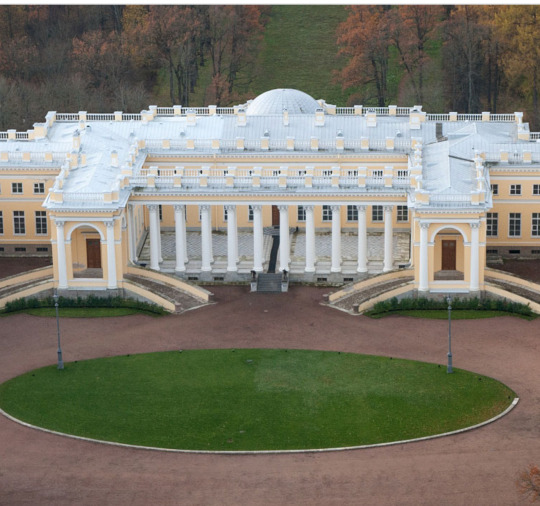

The Alexander Palace was a gift by Catherine II to her eldest grandson, the future Emperor Alexander I, on the occasion of his marriage to Grand Duchess Elizaveta Alexeevna. Its construction was completed in May of 1796, and in June, the Grand Duke Alexander Pavlovich, his wife, and his court moved into the "New Palace."
The Courtyard facade design of the Alexander Palace, done in the classical style, is considered one of the world's main masterpieces. The art critic I.E. Grabar wrote, "There are palaces bigger and more regal, but there is no palace which architecture is more beautiful."
The Alexander Palace was a summer dacha for the Imperial Family in the 19th century. Still, it became a real home for the last Russian Emperor, Nicholas II, and his wife, Alexandra Fiodorovna, during the last 13 years of their reign. From this palace, the family of Nicholas II was sent into exile in Tobolsk.
The Palace suffered much damage through the German occupation and was neglected for many years.
In late 2009, the palace recovered its museum status and restoration work started. In Tsarskoe Selo’s jubilee year of 2010, the first three state rooms – the Semi-Circular Hall, the Portrait Hall and the Marble Drawing Room – welcomed their first visitors.
In September 2015, the palace was closed for large-scale restoration works, which accomplished the first stage in 2021, when the restored rooms of Emperor Nicholas II and Empress Alexandra Fiodorovna in the east wing opened to visitors.
Some of the separate structures that are part of the Alexander Palace complex:
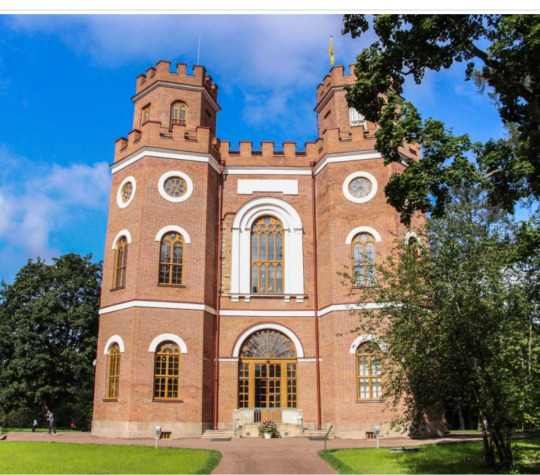
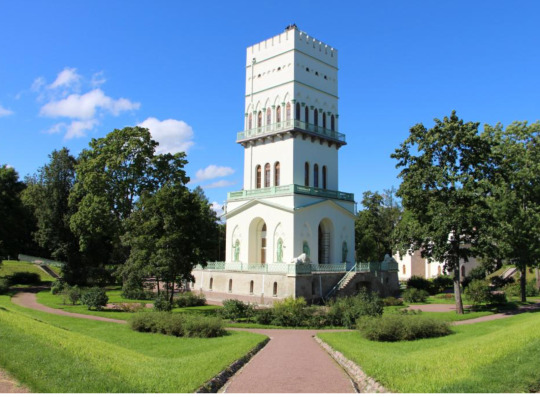
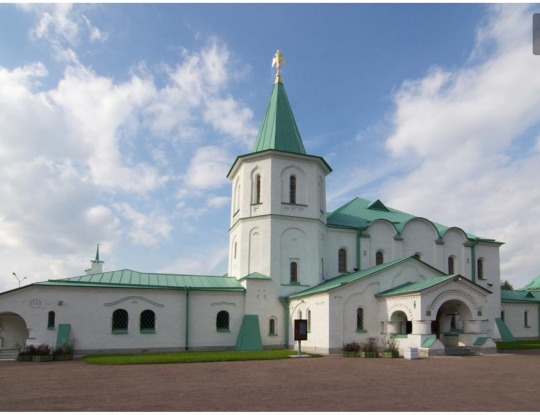



The Arsenal: Contained Nicholas I's collection of weapons (now at the Hermitage)
The White Tower: Built for the children of Nicholas I, who conducted military exercises and other activities there
Martial Chamber: Constructed by Tsar Nicholas II to use as a war museum
The Children's House: Constructed for the children of Nicholas I
Pensioner Stable: Nicholas I had this pavilion built for several of his brother Alexander I's horses whom he wanted to live out their lives there
The Chapelle: A small gothic church
Several views of the Gardens:

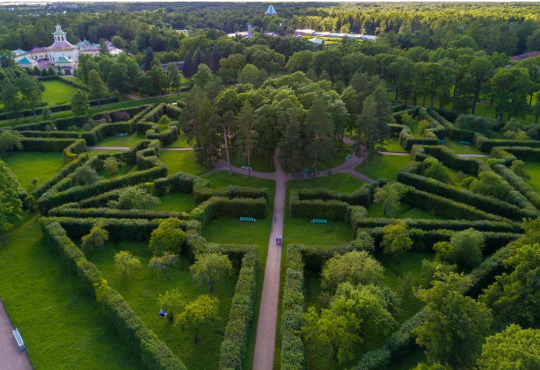
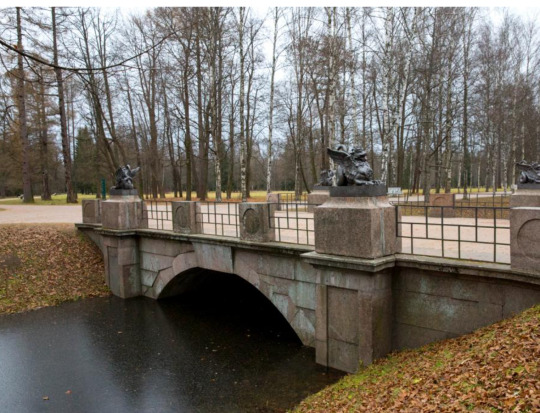
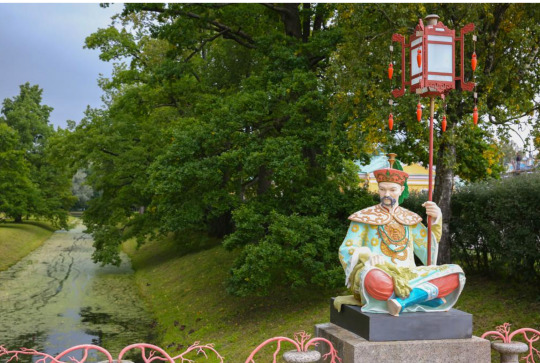
Some of the currently restored Interiors














1 note
·
View note
Text
The Case For Negotiating With Russia
Samuel Charap is asking Ukraine and its allies to consider how much worse the war could get.
— By Keith Gessen | August 29, 2023

Illustration By Ricardo Tomás
If you want to hear a different perspective on the war in Ukraine, talk to Samuel Charap. A fine-featured Russia analyst with, at forty-three, a head of gray hair, Charap works at the rand Corporation, a think tank that has been doing research for the U.S. military, among other clients, since the nineteen-forties. In the self-abnegating architectural spirit of many Washington institutions, it rents several floors of an office tower attached to a mall in Arlington, Virginia, not far from the Pentagon. The mall has a Macy’s and a Bath and Body Works, which are not places that Charap likes to go.
Charap, who grew up in Manhattan, became interested in Russian literature in high school, and then became interested in Russian foreign policy in college, at Amherst. He got a Ph.D. in political science at Oxford and spent time researching his dissertation in both Moscow and Kyiv. In 2009, he started working at the Center for American Progress, a liberal think tank in D.C. Russia had just fought a short, nasty war with Georgia, but the incoming Obama Administration was hoping to “reset” relations and find common ground. Charap supported this effort and wrote papers trying to think through a progressive foreign policy for the U.S. in the post-Soviet region. But tensions with Russia continued to increase. In the wake of Russia’s annexation of Crimea and incursion into eastern Ukraine, in 2014, Charap wrote a book, with the Harvard political scientist Timothy Colton, called “Everyone Loses,” about the background to the war. In it, Charap and Colton argue that the U.S., Europe, and Russia had combined to produce a “negative sum” outcome in Ukraine. Russia was the aggressor, to be sure, but by asking that Ukraine choose either Russia or the West, the U.S. and Europe had helped stoke the flames of conflict. In the end, everyone lost.
I first met Charap in the summer of 2017, not long after the book came out, and in the midst of a maelstrom of anger at Russia for its interference in the 2016 U.S. Presidential election. Robert Mueller had been appointed as special counsel for the Justice Department, Donald Trump had labelled the investigation a hoax, and Congress was in the process of passing a bipartisan sanctions bill against Russia. Charap was as angry as anyone else about the interference, but he thought the sanctions proposed in the bill were a mistake. “The idea of sticks in international relations is not just for beating other countries,” he told me at the time. “It’s for achieving a better outcome.” He used the example of the long-standing Iran sanctions, which had finally compelled Iran to come to the negotiating table and vastly limit its nuclear program. The sanctions on Russia, he went on, were not like that. “Sanctions are only effective at changing another country’s behavior if they can be rolled back,” he said. “And, because of the measures in this current bill, it’s going to be nearly impossible for any President to relieve them.”
In the following years, as Russia became more and more of a neuralgic subject in American politics, Charap continued to travel to Russia, engage with Russian counterparts, and look for ways to lower the temperature of the relationship. Going to Valdai—the annual conference where Vladimir Putin pretends to be a wise tsar interested in discoursing with professors on international politics—had become somewhat controversial. But, before the war began, Charap went to the conference whenever he could, and several times even asked Putin a question. “It’s my job to understand these people, and I was given firsthand access to them,” he said. “How can you understand a country if you don’t go and talk to the people involved in the decision-making?”
In the fall of 2021, Charap, along with much of the expert community in D.C., became worried that Russia was planning an invasion of Ukraine. In a piece in Politico that November, he urged the Biden Administration to work with Kyiv to make at least some nominal concessions, to see if the crisis could be defused. Two months later, as the crisis deepened, he wrote another piece, for the Financial Times. In this one, he argued that nato should announce publicly that Ukraine was not seriously being considered for membership. “Nato cannot and should not accept being told what to do by Russia,” Charap wrote. “But Moscow’s inflammatory rhetoric should not distract from the fact that Nato is not prepared to offer Ukraine membership. If doing so could avert a war, why not find some way to say out loud what any Nato official would say behind closed doors[?]”
When I spoke to Charap around this time, he was freaking out. The disposition of Russian forces, their activities, the fact that blood supplies were being sent to the Russian encampments: none of this was the behavior of an army conducting an exercise. Even more worrisome was the tenor of Russian diplomatic communications. Their demands—not only that Ukraine promise to never join nato but also that nato pull its troops back to their 1997 locations—were simply unrealistic. “They’re asking the world’s most powerful military alliance to strip naked and run laps,” he said. “But the gun they’re holding is to Ukraine’s head.” Charap estimated that if an invasion was going to happen, it would happen in late February.
In late January of 2022, he co-authored an editorial for Foreign Policy in which he argued that sending anti-tank Javelin missiles and anti-aircraft Stinger missiles to Ukraine would neither deter Russia from invading nor meaningfully affect the military situation if Russia did invade. He once again urged that diplomacy be given a chance.
And then the war began. It turned out that Charap and his co-author were right about Western weapons and deterrence—the Russian Army went in despite the Javelins and Stingers that had been sent to Ukraine by nato countries—but wrong about their military utility. The Russian Army used low-flying helicopters, vulnerable to Stinger fire, and sent armored vehicles, in a juicy column, straight down a main road toward Kyiv, where they were destroyed. Subsequent studies have pointed to Russian carelessness, timely U.S. intelligence, and, above all, Ukrainian mobility and courage as the prime factors in the debacle of the war’s first weeks for Russia. But the weapons helped.
Nonetheless, for Charap, there was more that the U.S. might have tried to prevent the fighting. In recent months, as the fighting has gone on and on, he has become the most active voice in the U.S. foreign-policy community calling for some form of negotiation to end or freeze the conflict. In response, he has been called a Kremlin mouthpiece, a Russian “shill,” and a traitor. Critics say he has not changed his opinions in fifteen years despite changing circumstances. But he has continued writing and arguing. “This is a five-alarm fire,” he said. “Am I supposed to walk past the house? Because, as bad as it’s been, it could get much, much worse.”
So far, the most active phase of negotiations to end the war took place in its first two months. During that time, there were numerous meetings between Russian and Ukrainian officials, most notably throughout March, in Turkey. At least one rumored proposal coming out of those talks had Ukraine agreeing to not seek nato membership in exchange for Russia abandoning all the territory it had seized after February 23, 2022. Accounts differ about what happened next. It was not clear that the ever-shifting Russian delegations had Putin’s support, nor was it clear that Western countries were willing to provide the sort of security guarantees Ukraine sought in place of nato membership. Soon these questions became moot. On March 31st, Russian troops withdrew from Bucha; Ukrainian soldiers who entered the city discovered mass graves and learned that residents had been tortured and randomly shot. Volodomyr Zelensky called what happened there “war crimes” and “genocide.” An early April visit to Kyiv from Boris Johnson, then the British Prime Minister, seems to have stiffened Zelensky’s resolve. After that, there were still occasional attempts at negotiation and mediation, but it was clear that both sides wanted to see what they could get by continuing the war.
In the spring and summer of 2022, Russia re-engaged in the Ukrainian east, trying to make progress in the Donbas region; it managed to level and capture the large port city of Mariupol, connecting the Russian mainland, through occupied Ukrainian territory, to Crimea. In the fall, Ukraine mounted a counter-offensive, which succeeded beyond anyone’s expectations. Ukrainian forces overran demoralized Russian troops in the Kharkiv region; they also laid siege to the city of Kherson, forcing a Russian retreat. In the winter, Russia was back on the offensive, occupying, after tens of thousands of casualties, the small city of Bakhmut, in the Donbas. Early this summer, it was Ukraine’s turn for another counter-offensive. This one was bolstered by much-publicized Western equipment and training, but so far it has not yielded anything like the successes of last fall.
At some point, this counter-offensive will end. The question will then become whether either of the sides is ready for negotiations. Russia has been saying for months that it wants negotiations, but it is not clear that it is ready to make any concessions. Most significantly, Russia has not backed off its demand for recognition of the territories it “fake-annexed” in September, 2022, in the words of Olga Oliker, of the International Crisis Group. Ukraine has said that it needs to continue fighting so it can expel the occupying forces and make sure that Russia never threatens Ukraine again.
The argument in the U.S. has split into two profoundly opposed camps. On the one side are people—not very many, at least publicly—like Charap, who argue that there might be a way to end the war sooner rather than later by freezing the conflict in place, and working to secure and rebuild the large part of Ukraine that is not under Russian occupation. On the other side are those who believe that this is no solution and the war must be fought until Putin is soundly defeated and humiliated. As the defense intellectual Eliot A. Cohen put it, in May, in The Atlantic:
Ukraine must not only achieve battlefield success in its upcoming counteroffensives; it must secure more than orderly Russian withdrawals following cease-fire negotiations. To be brutal about it, we need to see masses of Russians fleeing, deserting, shooting their officers, taken captive, or dead. The Russian defeat must be an unmistakably big, bloody shambles.
The arguments seem to be based, ultimately, on three kinds of disagreement. One is about the timing and meaning of negotiations. In a Foreign Policy piece last fall, Charap’s rand colleagues Raphael Cohen (Eliot’s son, as it happens) and Gian Gentile argued that any push by the U.S. for negotiations would send “a series of signals, none of them good.” As Raphael Cohen put it to me recently: “You’re basically telling the Russians, ‘Just wait us out.’ You’re sending a message to the Ukrainians and to the rest of our allies: the United States will put up a good fight for a little while, but in the end will walk away. And you’re telling the American public that we’re not really committed to seeing this through to the end.” Cohen added that he would feel differently if the Ukrainians no longer wanted to fight or, better yet, the Russians admitted defeat: “The bad guys have a choice in this, too. You have to get the Russians to a place where they view that they can’t win. Then we have something to talk about.”
Charap thinks this is a misunderstanding of what negotiations are and what they signal. “Diplomacy is not the opposite of coercion,” he said. “It’s a tool for achieving the same objectives as you would using coercive means. Many negotiations to end wars have taken place at the same time as the war’s most fierce fighting.” He pointed to the Korean armistice of 1953; neither side acknowledged the other’s claims, but they agreed to stop fighting to negotiate a peace deal. That peace deal never came, but, seventy years later, they are still not fighting. That armistice required more than five hundred negotiation sessions. In other words, it would be better to start talking.
Another disagreement centers on the possibility of a decisive Ukrainian battlefield victory. Charap believes that neither side has the resources to knock the other out of the fight entirely. Other analysts have also voiced this opinion, most notably General Mark Milley, the Chairman of the U.S. Joint Chiefs of Staff, who in a controversial comment last November compared the situation with the stalemate that prevailed toward the end of the First World War and suggested that it may be time to seek a negotiated solution. But the other side of this debate has been more vocal. They see a highly motivated Ukrainian Army, supported by a highly motivated populace. They point to the relative cheapness, to the U.S., of a war that pins down one of its major adversaries. And they believe that, given enough time, and enough Western weapons and training, Ukraine could take back a fair amount, if not all, of its territory; sever the land bridge to Crimea; and get close enough to Crimea to deter any future Russian military operations.
The final disagreement concerns Putin’s intentions. The “fight to the end” camp believes that, if Putin is not decisively defeated, he will continue attacking Ukraine. And some believe that if not stopped in Ukraine, as he was not stopped in Chechnya, Georgia, or Syria, he will keep going—to Moldova, the Baltics, Poland. They believe that European security is at stake.
Charap, of course, disagrees. He believes that it is possible to make a ceasefire “sticky”—by including inducements and punishments, mostly through sanctions, and by monitoring the situation closely. As for the view that Putin is bent, Hitler-like, on unceasing expansion, Charap is cautiously skeptical: “We have to admit that this is a more unpredictable actor than we thought. So while I’m not prepared to accept the Hitler narrative about how far his ambitions extend beyond Ukraine, I don’t think that we can rule it out.” But ambition is one thing; capability is another. Even if Putin wanted to keep going, Charap said, “he doesn’t have the means to do it—as this war has amply shown.”
To Charap, “The strategic defeat of Russia has already taken place.” It took place in the first months of the war, when Russian aggression and Ukrainian resistance helped galvanize a united European response. “Their international reputation, their international economic position, these ties with Europe that had been constructed over decades—literally, physically constructed—were rendered useless overnight,” Charap said. The failure to take Kyiv was the decisive blow. “Their regional clout, the flight of talent—the strategic consequences have been huge, by any measure.” And, from a U.S. perspective, Charap argues, any gains during the past sixteen months have been marginal. “A weakened Russia is good,” he said. “But a totally isolated, rogue Russia, a North Korea Russia—not so much.” A year ago, Russia was not deliberately targeting civilian infrastructure; now it regularly bombs Ukraine’s energy grid and port facilities. With every day, the chances of an accident or an incident that brings nato directly into the conflict increase. Charap is asking just how much that risk is worth.
“It’s not necessarily that I think Ukraine needs to make concessions,” he said. “It’s that I don’t see the alternative to that eventually happening.”
Earlier this year, Charap presented his position on the war at a security conference in the Estonian capital of Tallinn. During a hostile question-and-answer session, Edward Lucas, a former Economist editor, accused Charap of “Westsplaining,” and James Sherr, of the famed international think tank Chatham House, asked how he could be so sure Ukraine wouldn’t win the war outright. But the toughest question came from the Ukrainian activist Olena Halushka. “You are speaking a lot about the cost of fighting, the line of fighting here and there,” she said, in a strong but clear accent. “But what is your analytical perspective on the cost of occupation? Because if you take a look at what is happening, at all of the de-occupied territories, the patterns there are very similar. There are big mass graves, torture chambers, filtration camps, mass deportations—including the deportations of kids.” When Halushka concluded her remarks and sat down, the audience applauded.
Charap answered the other questions he’d been asked, but avoided responding directly to this one. When prodded by Halushka and the moderator, he said, “I don’t know exactly how to answer that question, except to say that of course I recognize there are horrible war crimes being committed under areas under Russian occupation. And it’s ultimately for the Ukrainian government to decide which is worse—the casualties that could occur as a result of the continued fighting,” or the brutality of the continued Russian occupation of Ukrainian land. Charap seemed uncharacteristically flustered. “I mean, I don’t know quite more what more to say to answer the question,” he said again.
It was the question—the tragic question—of how to think of the people who would be left behind if the line of contact were to freeze somewhere close to its current position. If the fighting went on, Ukrainian soldiers would die; if the fighting ceased, Ukrainian citizens would be trapped under a vicious and despotic regime.
I recently spoke with the Kyiv-based journalist Leonid Shvets, whom I have found, over the years, to have a knack for pithily formulating the views of the Ukrainian mainstream. He told me that conversations in which Americans came up with scenarios for Ukraine to surrender drove him up a wall. “Why don’t you surrender to the Chinese?” he said. “Give them Florida. You have lots of states, what’s one state less?” Florida, of course, was a complicated example. “Or, if you’re so eager to make a deal with the Russians, why don’t you give them some of your land? Give them Alaska.” He thought that anything short of total defeat for Putin would just mean that the war would start up again. “We went through this already in 2014,” he said.
“Here’s the problem,” he continued. “If we freeze the situation where it now is, not along Ukraine’s internationally recognized border but along whatever line the front happens to be at, then we acknowledge that internationally recognized borders are just a kind of fiction, which you can ignore. That’s a very bad lesson. And, second, if we put the borders in this new place, then we’re in a situation where this new border is worth even less than the internationally recognized border. Maybe a new military operation will move it even further, move it over here, or move it over there. So at that point it is just totally without meaning.”
Shvets acknowledged that people in Ukraine were exhausted after a year and a half of war. “No question, every day the war goes on is, for us, specific people who are lost, and specific houses that are destroyed. Absolutely. But we are not yet ready for defeat.” He went on: “There may come a point where we need to negotiate. But from where we are right now, that point is not visible to me.”
There are dissenting voices within Ukraine, but they are seldom heard from in public. One former official, who asked that we disguise his identity, told me, “The dialogue is not just toxic. If you are not jumping up and down with the mainstream, then you are an enemy.” The former official was not an enemy, but he did blame the Zelensky administration for its lighthearted and irresponsible attitude toward the Russian troop buildup in 2021. The former official was getting his family out of the country and making preparations for what he believed was an imminent attack. Meanwhile, Zelensky was telling people to remain calm and citing Ukraine’s sovereign rights. This, the former official said, was a grave miscalculation. “When there’s a crazy person next to you with a Kalashnikov, you don’t start talking to him about the U.N. Charter!”
The former official believes that the Istanbul talks were the best chance at a more or less stable peace. “Back then Bakhmut was a beautiful city,” he said. “Mariupol was under Ukrainian control.” But now “there is no win-win solution any longer,” he said. “Someone will have to lose.” He hoped it would be Russia. But he feared it could be Ukraine. I asked him when public opinion might begin to turn. “When every single person knows someone who has been killed or wounded,” he replied. The country was getting there.
For Charap, the Ukrainian position on when to stop fighting is decisive, but it’s an evasion of responsibility to pretend that the U.S. can’t have an opinion on the matter. “You have to do this with the Ukrainians,” he said. “You can’t do it to the Ukrainians. But to suggest that we have no ability to influence them in any way is disingenuous. Like, we feel it’s O.K. to advise them about everything under the sun, but not war termination?”
Charles Kupchan, a professor of international affairs at Georgetown who served on the National Security Council staff in the Clinton and Obama Administrations, goes further. “Fighting for every last inch of Ukrainian territory,” he told me, is “morally justified. It’s legally justified. But I’m not sure that it makes a lot of strategic sense from Ukraine’s perspective, or from our perspective, or from the perspective of the people in the Global South who are suffering food and energy shortages.” He said that the U.S. Administration needs to let the Ukrainian counter-offensive play out. But at the end of this year, or maybe early in 2024, it will have to talk with Zelensky about negotiations. “I wouldn’t say, ‘You do this or we’re going to turn off the spigot.’ But you sit down and you have a searching conversation about where the war is going and what’s in the best interest of Ukraine, and you see what comes out of that discussion.”
Of course, in the wake of everything the world has witnessed since February of 2022, this is easier said than done.
The debate in the U.S. over Russia and Ukraine has become one of the most vicious foreign-policy disputes in years. “It has come to resemble the debate over Iran policy that we were having in the twenty-tens,” Emma Ashford, a senior fellow at the Stimson Center and a longtime critic of U.S. hawkishness toward Russia, told me. “It became less a debate about actual policy than a debate where people were very quick to call names, sling dirt, accuse people of being in league with foreign interests.” In the pages of Foreign Affairs, the arguments are polite, but in the wilds of Twitter, things get ugly.
Ashford said, “There’s a lot of emotion. This is a major war. Thousands and thousands of people have died. It’s barbaric, and people get very emotionally involved with their positions.” Emotional intensity is also, she added, a useful tactic for the hawks. “It can be quite an effective way to shut down discussions over negotiations—to argue that it’s a betrayal of Ukraine, that it’s going to get people killed, that it’s what Russia wants. ”
Rajan Menon, the director of the grand-strategy program at Defense Priorities, a think tank that advocates for a more restrained U.S. foreign policy, is a longtime analyst of Russian affairs. He’s visited Ukraine several times since the war began and written extensively on possible solutions to the conflict. He thinks Charap’s prescriptions for an armistice are premature—that there is not yet enough will on either side to stop the fighting—but he is dismayed by the rhetorical atmosphere in the U.S. “There are people who are looking with a good-faith effort to try to see if there’s a way out of this box,” he told me. “And for their trouble they’ve basically been lambasted as appeasers or sympathetic to Putin and so on. This has got to stop.”
Charap is clearly bothered by some of the vitriol that’s been directed at him, but he chalks up the intensity of the debate to the barbarity of the Russian military. “I need to keep doing my job,” he said, which is to think and analyze and propose.
In just the last few weeks, as the Ukrainian counter-offensive continued to make agonizingly slow progress, the conversation moved closer to Charap than it has in months. In mid-August, a Washington Post article revealed that U.S. intelligence assessed that Ukraine would not be able to reach the key city of Melitopol during this offensive, and Politico quoted a U.S. official wondering whether Milley had been right, back in November, when he suggested that it may be time to seek a diplomatic solution. Congressional support, which aside from the Trumpian right had been fairly unstinting, has begun to waver. “Is this more a stalemate?” the Republican congressman Andy Harris, a member of the far-right Freedom Caucus and a co-chair of the congressional Ukraine Caucus, asked constituents at a town-hall meeting in mid-August. “Should we be realistic about it? I think we probably should.”
Some have pushed back on this analysis. The counter-offensive is not yet over, and there is a possibility that it will yet surprise everyone. “It’s been a miracle,” Olga Oliker, of the International Crisis Group, said of the successful Ukrainian resistance. “Maybe there’ll be another miracle.” The White House, at least publicly, has been of the same view. “We do not assess that the conflict is a stalemate,” the national-security adviser Jake Sullivan told reporters last week.
Charap isn’t ready to call time on the Ukrainian counter-offensive, either. But he continues to worry that the Administration is being too cautious about starting work on a diplomatic solution. “Most people now recognize that Plan A isn’t working,” he said. “But that doesn’t mean they’re prepared to discuss Plan B.” What would a Plan B look like? “It would be a diplomatic strategy,” he said. “It would be thinking about the choreography of how you engage.” It would be the “searching conversation” with Ukraine, and similar conversations with nato allies. It would be trying to get Putin to appoint a representative who has authority to negotiate, and appointing such a representative on the U.S. side, with Ukrainian support.“This is the kind of pre-negotiation interaction that will be necessary to lay the groundwork,” Charap said, “and then you actually devote resources inside the government to thinking through the practicalities and getting the right pieces in place.”
He admits that such an initiative could fail: “The only way you really can know is if we actually try and it doesn’t work. You haven’t lost anything if you do that.” In Charap’s view, the risks of not trying are higher than the risks of trying. Every day, on the front lines of the biggest war in Europe since 1945, young men and women lose their lives. Many more will, before this is over. That’s one thing about which everyone is certain. ♦
0 notes
Text
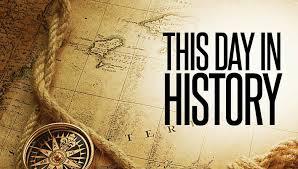
January 09
[475] Byzantine Emperor Zemo is forced to flee his capital at Constantinople.
[1296] Earl Floris V signs accord with French King.
[1317] Phillips V, the Tall, crowned King of France.
[1349] 700 Jews of Basel Switzerland, burned alive in their houses.
[1570] Massacre of Novgorod: Tsar Ivan the Terrible kills 1,000-2,000 residents of Novgorod.
[1718] France declares war on Spain.
[1776] Writer Thomas Paine publishes his pamphlet "Common Sense".
[1788] Connecticut becomes 5th state to ratify the US Constitution.
[1812] Napoleonic Wars: Swedish Pomerania (Germany) seized by Napoleon.
[1847] 1st San Francisco newspaper published (California Star).
[1878] Umberto I becomes King of Italy.
[1927] Fire in Laurier Palace cinema in Montreal, 78 children died.
[1941] 6,000 Jews murdered in a program in Bucharest, Romania.
[1980] 63 beheaded in Mecca, Saudi Arabia.
[2001] Apple launches iTunes, revolutionizing how people consume music.
[2007] Steve Jobs debuts his iPhone at the Macworld convention in San Francisco.
[2009] High School Musical actress Kaycee Stroh (24) weds Ben Higginson (24) at Salt Lake Temple in Salt Lake City, Utah.
[2012] FIFA Ballon d'Or: Barcelona forward Lionel Messi wins award for a record 3rd consecutive year.
[2022] Fire in a Bronx, New York. residential high rise kills 17 and injures 63.
#on this day in history#on this day#otdih#otd#american history#january#football history#football#world history#january 09#itunes#steve jobs#iphone#thomas paine#ivan the terrible#napoleonic wars#umberto i#jews#fifa ballon d'or#lionel messi#leo messi#messi#high school musical#kaycee stroh
0 notes
Text
Snake Bytes: 11/6 Astros win it all
New Post has been published on https://petnews2day.com/pet-news/small-pet-news/snake-bytes-11-6-astros-win-it-all/
Snake Bytes: 11/6 Astros win it all

Congrats to the Houston Astros, who eliminated the Phillies last night by a score of 4-1. Yordan Alvarez hit a historic 3 run home run in the bottom of the 6th to put the Astros ahead. It was his only HR of the series, and only his third hit (3-23, .130 BA) I am glad Dusty Baker finally got a ring as a manager. He had won the 1981 WS as a player for the Dodgers. Jeremy Pena is the WS MVP.
I do want to give a hat tip to the Phillies’ improbable run.
The gameday
https://www.mlb.com/gameday/phillies-vs-astros/2022/11/05/715719#game_state=final,lock_state=final,game_tab=wrap,game=715719
Out of this World! Astros finish off Phils for Series title
….the famous frustrations Dusty Baker had endured in a 25-season pursuit of a ring as a skipper, there was cleansing catharsis as the champagne flowed freely. “He means everything,” Jose Altuve said of Baker. “I said many, many times, he came at the right time, with the right team, and won his first World Series.”
https://www.mlb.com/news/jeremy-pena-2022-world-series-most-valuable-player
Super rookie Peña makes history as World Series MVP
https://www.mlb.com/news/jeremy-pena-2022-world-series-most-valuable-player
THE HOUSTON ASTROS ARE WORLD SERIES CHAMPIONS!!!
https://www.crawfishboxes.com/2022/11/5/23442895/the-houston-astros-are-world-series-champions
It’s all over: Astros 4, Phillies 1
https://www.thegoodphight.com/2022/11/5/23442831/its-all-over-astros-4-phillies-1
Much respect to Jack, Nick, Steve and Michael, etc, cranking out articles when there is “nothing” to report. I couldn’t do it.
The Diamondbacks Clear 40 Man Roster Space
https://www.si.com/mlb/diamondbacks/news/the-diamondbacks-clear-40-man-roster-space
Diamondbacks 2022 Season Player Reviews: Josh Rojas
https://www.si.com/mlb/diamondbacks/analysis/diamondbacks-2022-season-player-reviews-josh-rojas
Jordan Lawlar, Justin Martinez Named Fall Stars in Arizona Fall League
https://www.si.com/mlb/diamondbacks/prospects/jordan-lawlar-justin-martinez-named-fall-stars-in-arizona-fall-league
(Full rosters https://www.mlb.com/arizona-fall-league/fall-stars-game/national-league-roster)
This day in baseball:
Pretty much all of it is contract extensions and awards. No real surprise being this late. Before last night, the latest a world series game had been played was Nov 4, 2001 and Nov 4, 2009.
https://www.baseball-reference.com/bullpen/November_6
This day in history:
Spanish conquistador Alvar Nunez Cabeza de VacaIn was shipwrecked in on an island in Texas, becoming the first European to set foot there, in 1528. In 1860, Lincoln was elected President. Lenin leads the Bolsheviks in a coup and otherthrows the provincial government of Russia. (This was not the revolution that overthrew the Tsar, that happened March 1917) in 1917.
Drinking coffee in Turkey was once punishable by death.
In 1633, The Ottoman Sultan Murad IV beheaded anyone he saw drinking coffee in public. Aside from coffee being seen as a mild narcotic back then for its stimulating properties, Murad IV believed that coffee shops could encourage dangerous thoughts or speech against his rulership.
Oh, like a beer hall in Munich in the early 1920’s? Ok, ok, bad joke…
Lincoln Had Dream about His Assassination before It Happened
Lincoln is believed to have had a premonition about two weeks before his death, and actually anticipated the assassination. He also told his bodyguard on April 14, 1865 that he had dreamed about being assassinated for three nights in a row. Sadly, his dreams became a reality that very evening. Lincoln was apparently very interested in dreams and their meanings, and often discussed the topic with friends.
The Russians showed up 12 days late to the 1908 Olympics.
It was no sweat, though: back then, the Olympics lasted for 6 months. The Russians showed up late to the 1908 London Olympics because they were using the Julian calendar, which is 2 weeks behind the Gregorian calendar already used by the rest of the world.
Are we absolutely sure it wasn’t too much vodka?

0 notes